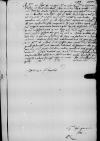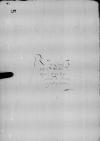List #2193
Ioannes DANTISCUS do Tiedemann GIESEHeilsberg (Lidzbark), 1539-07-16
Regest polski:
Posłaniec Dantyszka [Mauritius] powrócił z dworu, przywożąc korespondencję, „List Melanchtona do senatu weneckiego” oraz inne teksty. Z załączonych listów Giese dowie się o wydarzeniach i pozna nowiny.
Dantyszek nie czuje się odpowiedzialny za zbyt późne przesłanie królowi [Zygmuntowi I] pisma [radców pruskich] w sprawie obsadzenia godności [kasztelana elbląskiego]. Uważa, że każdy mógł działać w tej sprawie indywidualnie.
Czeka na dokładne wskazówki Giesego, w jaki sposób ma wspierać jego sprawę.
Przekazuje Giesemu list króla do Rady Pruskiej z zaleceniem przekazania go dalej.
Rękopiśmienne podstawy źródłowe:
Pomocnicze podstawy źródłowe:
Publikacje:
| ||||||||
Tekst + aparat krytyczny + komentarz Zwykły tekst Tekst + komentarz Tekst + aparat krytyczny
Reverendissimo in Christo Patri et Domino, domino
Reverendissime in Christo Pater et Domine, frater et amice carissime et honorande.
Salutem et fraternam commendationem.
Heri is cf.
Quod tardius ad
Si quem eo allegare de suis, ut statuit, Dominatio Vestra Reverendissima voluerit, mature fieri potest. Acceleratione res non eget, priusquam Dominatio Vestra Reverendissima de rebus suis nuper per
Quam diutissime felicissimeque valere summopere cupio et aveo.
Ex
Reverendissimae Dominationis Vestrae frater integerrimus


 BCz, 245, p. 210
BCz, 245, p. 210